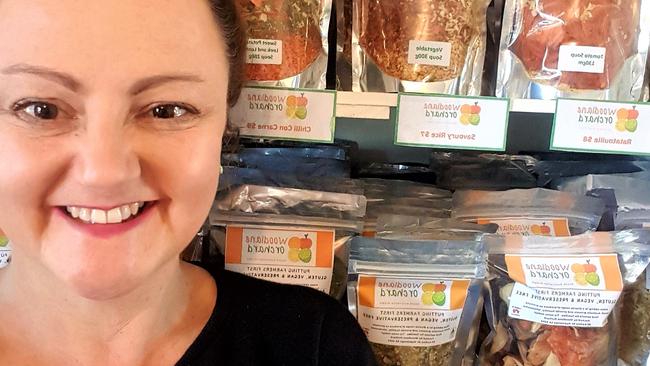Global food waste: One woman’s mission to cut farming waste
About 30 per cent of the world’s farming land grows food that is wasted. One woman is working to tackle this waste head-on.
Waste fruit too expensive for growers to pick could be a critical part of reducing Australia’s food waste, according to one passionate advocate.
But the role of agriculture in reducing waste is yet to be thoroughly researched, with the commercial sector under increased scrutiny for the role supply chains play in addressing wastage.
It comes as a federal government review found supermarkets are over-ordering fresh produce, resulting in an oversupply of fruit and vegetables.
A recent UN Food Waste Index report found global food waste accounted for nearly 30 per cent of the world’s agricultural land, and for more than a third of all global food production.
Despite the stark figures, South Australia’s Kelly Johnson is optimistic for the opportunities for agriculture in working to reduce food waste.
Based at Wall Flat, she founded her company, Woodlane Orchards, after a friend growing peaches admitted to throwing away tonnes of fruit he couldn’t find a market for.
“I was out of work at the time, and decided to value add and move them on, so they wouldn’t go to waste,” Ms Johnson said.
She went on to dry the excess fruit and sold it to the public at farmers markets.
Her business works to buy damaged produce direct from farmers, to be dried and sold as meal packages and snacks.
“Farmers can’t afford to pick the food they won’t get paid for, that’s the bottom line,” Ms Johnson said.

“All we need is one person in a region, as a co-ordinator, where there is food waste to go out and pick it, and then businesses like myself that would use that food waste.”
The Federal Government has committed to halving food waste by 2023, with a 2023 government report finding food waste costs the national economy more than $36 billion annually.
Charles Darwin University senior lecturer in law Susan Bird said the UN report showed the majority of food waste worldwide comes from the domestic sphere, with Australia “a leader” in measuring progress in addressing food waste, “one of only four G20 countries to do so”.
“Food supply chains are global. Australia exports the majority of food grown in this country – up to 70 per cent,” Dr Bird said.




